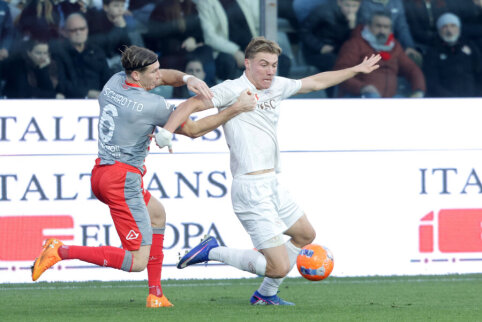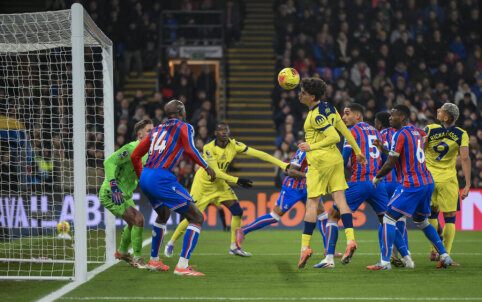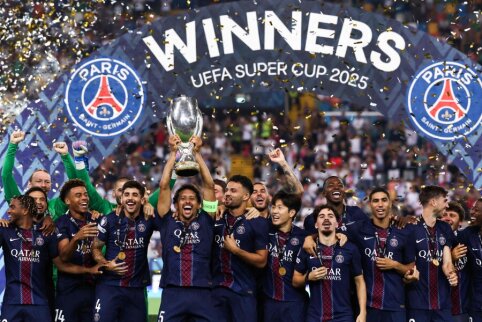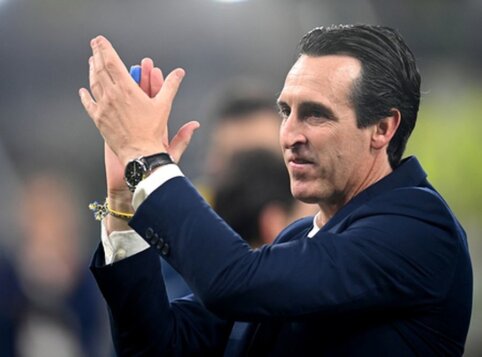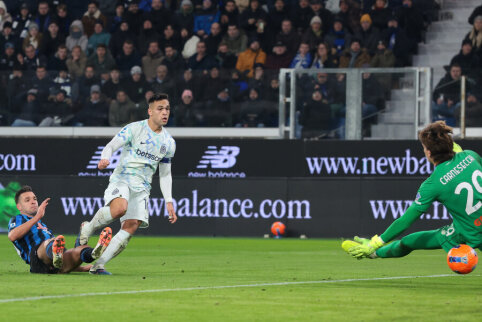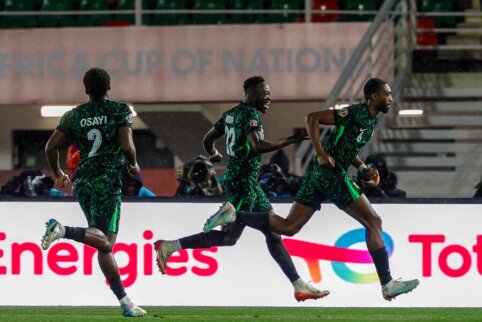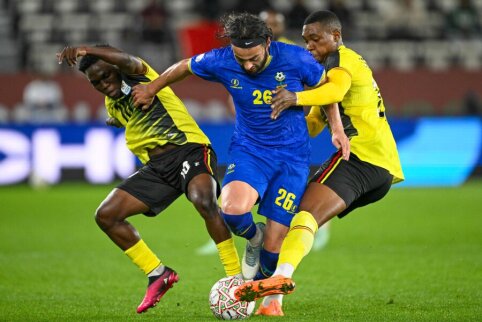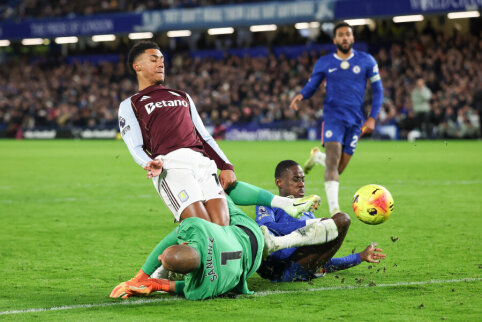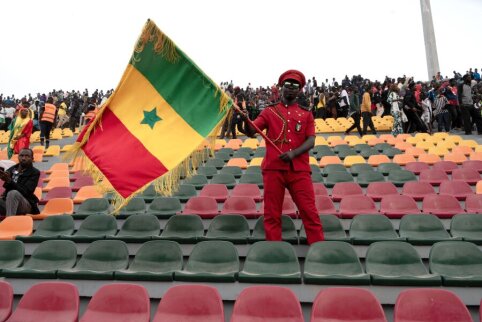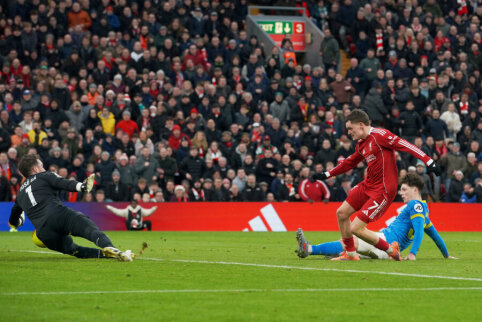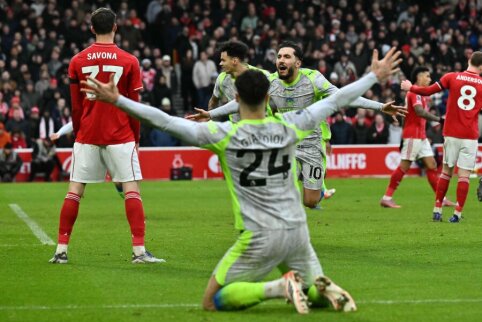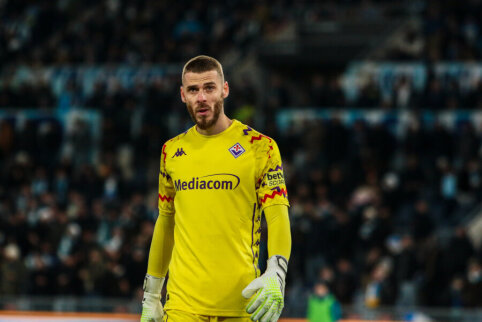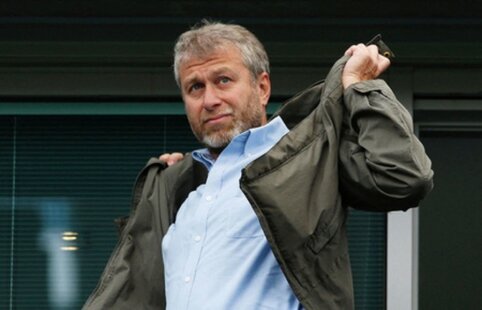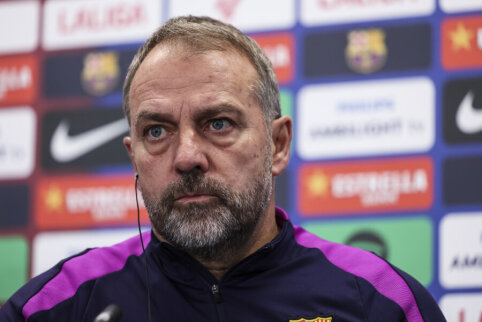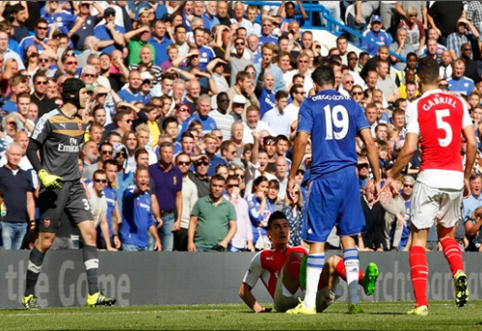
Diego Costa tried from the very beginning of his arrival in England to become the most opinion-dividing figure in the Premier League, but those opinions had never been so divided as after Chelsea's 2-0 victory against Arsenal.
From the first whistle, D. Costa found himself in the epicenter of the clashes with Gabriel and Laurent Koscielny and was ready for both physical and verbal combat.
Throughout the game, he did not have a noteworthy chance to score, but his presence on the field and psychological threat to opponents is no less than the danger he poses with his football abilities.
The final verdict was clear. Jose Mourinho considered D. Costa the best player of the match and compared his spirit and combativeness to participants of the Rugby World Cup.
Arsene Wenger accused the forward of being a "serial rule-breaker" who somehow manages to avoid punishment. This happened on Saturday when he twice hit L. Koscielny in the face, then pushed him and provoked Gabriel to receive a red card.
During this sequence, after which he somehow did not receive a red card, he created a moment that won his team the match.
Costa remains a very important figure for Chelsea.
D. Costa's start to this season has been quite poor, but his importance to the Chelsea club was evident once again. His physical impact and menacing attitude were reasons for disrupting Arsenal's defense.
Statistics show that D. Costa does not have the same influence on the field this year as he did last year. Last season, after 6 league matches, he already had 8 goals, and his leadership took Chelsea to be the favorites for the championship. This season he has only one goal, hitting the goal only 8 times.
And yet, in difficult times for the team, J. Mourinho still sees D. Costa as the man who can bring Chelsea back to the top, even when he plays on the edge of the rules or even crosses that line.
J. Mourinho also exaggerated by calling him the best match player, although he undoubtedly contributed significantly to the victory by provoking Gabriel and leaving Arsenal to play with ten.
He was the "most important person in the match," but certainly not the best player on the field.
D. Costa was eventually replaced after Santi Cazorla's red card, probably considering that Arsenal were then reduced to nine, and the atmosphere changed again.
There are still few goals to his account, and in these matches, he essentially did not have any noteworthy opportunities, but the applause storm at Stamford Bridge stadium showed that among Chelsea fans he remains a cult figure.
The good news for Chelsea is that D. Costa physically withstood the match and in the second half made several quick sprints, suggesting that the issues that plagued him are now under control.
D. Costa's bad reputation is deserved.
Arsenal coach A. Wenger did not hide his disgust with D. Costa's behavior and marveled at how a player who so often breaks the rules constantly manages to avoid punishment.
As always, the naturalized Spaniard sought conflicts on the field from the first minutes of the game, and the incident with L. Koscielny was the culmination.
Gabriel's attempt to defend his teammate earned him a yellow card, and the continuing dialogue in which D. Costa willingly participated provoked the Brazilian defender to get sent off the field.
In some way, D. Costa emerged from this incident with just a yellow card, which angered A. Wenger. He claimed that the Chelsea forward would behave the same way next week and again escape punishment.
He certainly tends to provoke, but statistics show that match referee Mike Dean did not whistle for any faults against him, even though he was involved in almost all controversial moments of the match.
Just after moving to Chelsea, D. Costa faced Everton goalkeeper Tim Howard in a match that the London club won 6-3.
In January, after the match, he was charged with a three-match suspension for an offense against Liverpool defender Emre Can in the League Cup semi-final. In the Champions League match against PSG, D. Costa had to be separated from Yohan Cabaye.
In the same match, he managed to avoid punishment after he knocked down PSG defender Marquinhos, and the referee Bjorn Kuijpers turned a blind eye to the incident.
D. Costa shows no signs of improvement, and J. Mourinho does not oppose it.
However, despite that, D. Costa's list of punishments at Chelsea is not very terrible - 10 yellow cards and no reds (post-match penalties are not counted) in 44 Premier League matches.
A. Wenger believes that D. Costa is either being leniently punished or is able to skillfully feign innocence. But whether the Football Association will take action after the latest incident is still unclear.
Is it time for referees to tighten their approach to Costa?
A. Wenger certainly agrees. It can be guessed that all other Premier League coaches would agree, except J. Mourinho.
His joy at D. Costa's actions on Saturday partly seemed to mock what he called A. Wenger's "crying" - but in this case, the Frenchman has a very strong case.
D. Costa's playing style is an essential part of J. Mourinho's team, but his clashes with referees have become almost a weekly occurrence.
And his behavior against Arsenal was the best example of it. He baited the opposition's defenders from the first whistle, and Gabriel eventually fell for it. The Brazilian knew what awaited him, but still fell into the trap.
But he had every right to ask why the Chelsea player remained on the field and received only a yellow card for his actions.
Seven photos that prove Diego Costa got away with it against Arsenal http://t.co/z0ChOKXmjU pic.twitter.com/K7KtRU4FY3
A. Wenger's words, D. Costa is a serial rule-breaker, and the idea that he will behave the same way in the match against Newcastle United next week is a request for referees to finally take real action.
D. Costa was lucky on Saturday - but if he continues to act this way, that luck will run out quickly.
Phil McNulty, BBC
